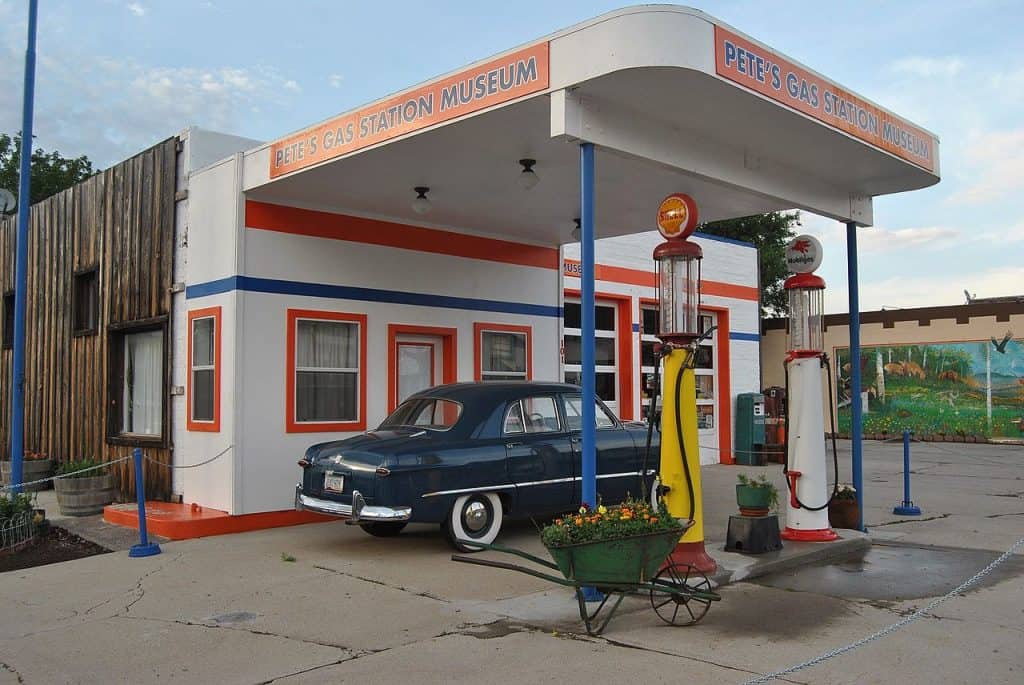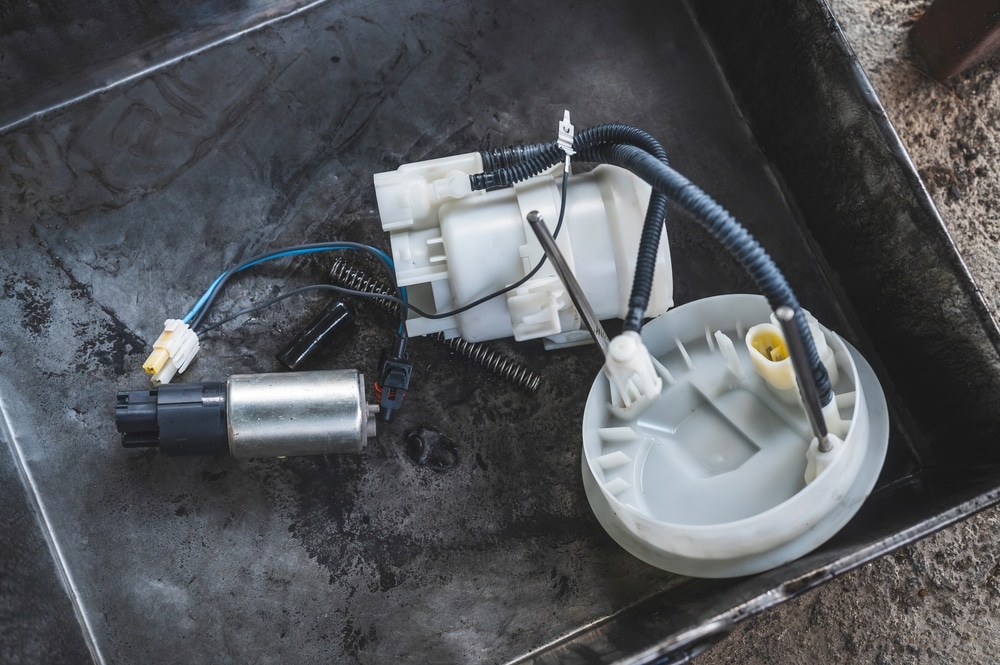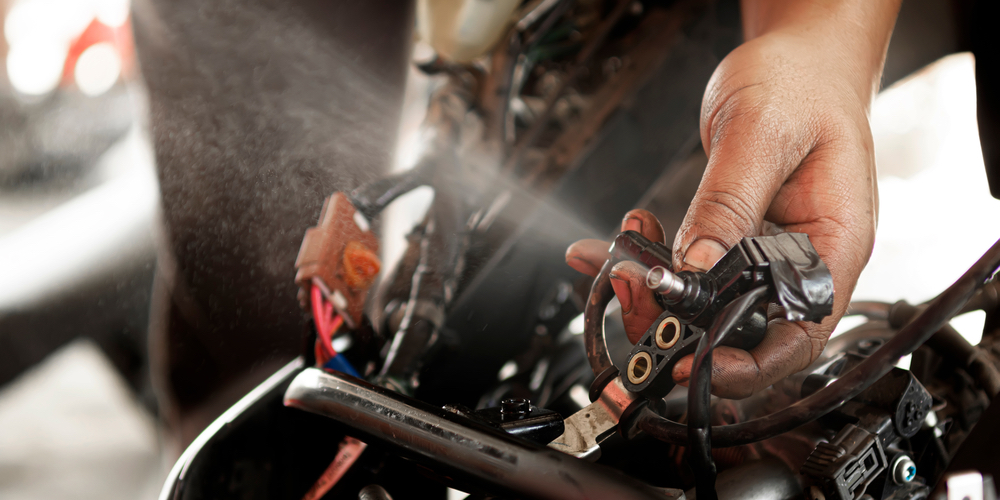
You’re driving along, windows down, enjoying the breeze when suddenly – whiff! That unmistakable gasoline smell hits your nose.
Don’t panic, but don’t ignore it either. A gas odor in your car can range from a minor nuisance to a serious safety hazard.
The most common reasons for a gas smell in your car include a loose or faulty gas cap, a rich-running engine, or a fuel leak somewhere in the system.
Each of these issues has its own set of symptoms and solutions. A loose gas cap is an easy fix, while a fuel leak might require professional attention.
Remember, your nose knows best. If you’re catching whiffs of gasoline while driving, it’s time to play detective.
Let’s dive into the potential culprits and figure out how to get your ride smelling fresh again.
Key Takeaways
- Gas smells can indicate issues ranging from minor to serious
- Prompt investigation and repair is crucial for safety
- Regular maintenance helps prevent fuel system problems
Common Symptoms of a Gas Smell in Your Car
A gas smell in your car can be concerning and potentially dangerous. It’s crucial to recognize the signs and understand what they might indicate about your vehicle’s health.
Identifying the Telltale Signs

You might notice a strong gasoline odor when you first start your car in the morning. Don’t worry, this can be normal as engines often run rich on startup.
But if that smell lingers, you’ve got a problem, buddy.
Your nose knows best – trust it!
Look out for that fuel odor when you’re idling at a stoplight or after you’ve parked. It’s like your car is trying to tell you something.
Check under your vehicle for any wet spots. If you see a rainbow-colored puddle, that’s not a pot of gold – it’s likely a fuel leak.
Pay attention to your fuel gauge. If it’s dropping faster than your bank account on payday, you might have a leak.
The Role of the Check Engine Light

Ah, the trusty check engine light – your car’s way of saying, “Hey, we need to talk.”
When this light comes on along with a gas smell, it’s like your car is screaming for help. Don’t ignore it, or you’ll be sorry!
The light could indicate issues with your fuel system, like a faulty oxygen sensor or problems with the evaporative emissions system.
Some cars have a separate light for the gas cap. If it’s on, tighten that cap like you’re sealing a jar of your grandma’s secret pickles.
Remember, your car’s computer is pretty smart. It might detect fuel system issues before you even smell anything.
Potential Causes for the Gas Smell
That pesky gas smell in your car can be quite the mystery, but fear not! Let’s dive into the common culprits that might be turning your ride into a mobile gas station.
Fuel System Components and Leaks
Ever wonder if your car’s having a little too much to drink? Well, a fuel leak could be the boozy culprit. Check those fuel lines, my friend – they might be cracked or loose.
Your fuel injectors could also be the troublemakers. If they’re stuck open, they’re basically force-feeding your engine more gas than it can handle. Talk about a bad diet!
Don’t forget about the fuel tank and fuel rail. A crack in either of these could have you leaving a trail of gasoline breadcrumbs wherever you go.
Oh, and that innocent-looking gas cap? Make sure it’s not playing hooky. A loose or damaged cap can let those fumes escape faster than you can say “fill ‘er up!”
Evaporative Emission System Issues

Your car’s EVAP system is like a nose plug for gas fumes. When it’s not working right, those smelly vapors can escape and invade your nostrils.
The charcoal canister is the unsung hero here. If it’s damaged, it can’t trap those pesky vapors anymore. It’s like trying to catch butterflies with a broken net.
EVAP leaks are sneaky little devils. They can happen anywhere in the system, from hoses to valves. It’s like playing “Where’s Waldo?” but with gas smells.
Your fuel pressure regulator might also be joining the gasoline party. If it’s not regulating properly, it could be flooding your engine with more fuel than it needs. Talk about being too generous!
Exhaust and Engine Compartment Culprits
Sometimes the smell is coming from places you’d least expect. Your engine bay could be hiding some gassy secrets.
Loose spark plugs can let fuel and air escape from the cylinders. It’s like your engine is burping out gas fumes. Not very polite, is it?
An exhaust leak can also be the smelly perpetrator. If your exhaust system has a crack or hole, it’s basically a superhighway for gas fumes to enter your car.
Don’t forget to check that oil cap. If it’s loose or damaged, it could be letting oil vapors mix with fuel vapors. It’s like a cocktail party you definitely don’t want to attend.
Diagnosing the Problem
Got a whiff of gas in your trusty ride? Let’s sniff out the culprit! We’ll start with some DIY detective work before deciding if it’s time to call in the pros.
Checking the Usual Suspects
First, take a peek under the hood. Look for any obvious fuel leaks around the fuel rails. Don’t be shy – get in there and give it a good once-over. Just remember to wear gloves, folks!
Next up, inspect those fuel lines. They’re like the veins of your car’s fuel system. Any cracks or wear? That’s a no-no.
Don’t forget to check your gas cap. It might seem silly, but a loose or faulty cap can let those fumes escape. Give it a good twist – if it clicks, you’re golden.
Spark plugs can be troublemakers too. If they’re loose, they’ll let unburned fuel sneak out. Tighten ’em up if needed.
Lastly, take a gander at your exhaust system. A leak here can make your car smell like a gas station on wheels.
When to Consult a Professional Mechanic
If you’ve played detective and still can’t crack the case, it’s time to bring in the big guns. A pro can check trickier spots like the evaporative emissions system or the fuel pressure regulator.
They’ve got fancy tools to sniff out leaks in hard-to-reach places. Plus, they can run diagnostics to check if your oxygen sensor is on the fritz.
Remember, if the smell is really strong or you spot a puddle under your car, don’t mess around. Get it to a shop pronto. Better safe than sorry, right?
Repair and Prevention
Got a whiff of gasoline in your ride? Let’s tackle that pesky smell and keep it from coming back. Trust me, your nose (and your passengers) will thank you.
Fixing the Issue at Hand
First things first, you’ll want to pinpoint that gas odor’s source. Check your fuel cap – it’s often the culprit. If it’s loose or damaged, tighten or replace it. Easy peasy!
Next up, take a peek at your fuel lines and connections. Any signs of wetness or corrosion? Time for a replacement, my friend. Don’t forget to inspect the fuel filter and pump too. These little buggers can cause big stinks when they’re on the fritz.
If you’re feeling brave, pop the hood and give those spark plugs a once-over. Loose ones can let fuel escape, causing that pesky gas smell. Tighten ’em up or swap ’em out if needed.
Preventative Steps and Regular Maintenance
Now, let’s keep that gas smell from making a comeback. Regular maintenance is your best friend here.
• Change your fuel filter every 20,000-30,000 miles
• Replace your fuel pump every 100,000 miles
• Check fuel lines and connections annually
Don’t forget about your EVAP system. This little gem prevents fuel vapors from escaping. Have it checked during your routine service to catch any issues early.
Keep an eye on your dashboard too. That pesky check engine light might be trying to tell you something about your fuel system. Don’t ignore it!
Lastly, always use high-quality fuel and fill up at reputable stations. Your car’s palate is refined, after all. Treat it right, and it’ll return the favor with a smell-free ride.
Enhancing Fuel Safety and Performance
Keeping your car smelling fresh and running smoothly is easier than you might think. A few simple upgrades and smart habits can make a world of difference.
Upgrading Components for Efficiency
Ever thought about giving your ride a little boost? Start with the fuel injection system.
A clean, well-maintained system can work wonders for your engine performance. Consider swapping out those crusty old fuel injectors for shiny new ones.
Don’t forget the fuel filter! It’s like a bouncer for your engine, keeping all the nasty stuff out. Replace it regularly, and your car will thank you with improved efficiency.
Feeling fancy? Upgrade to a high-flow fuel pump. It’s like giving your car a shot of espresso – more power, better response. Just remember, with great power comes great responsibility (and maybe a lead foot).
Adopting Safe Refueling Practices
Let’s talk about filling up. You know that satisfying “click” when the pump stops? That’s your cue to stop, not an invitation to squeeze in a few more drops.
Overfilling can lead to gasoline odors and potential spills.
Always tighten that gas cap. It’s not just there to look pretty – it keeps those pesky fuel vapors where they belong. A loose cap is like leaving your front door open; all sorts of trouble can wander in.
And here’s a pro tip: fill up in the morning or evening when it’s cooler. Less heat means less vapor, which means less chance of that gassy smell following you home. Your nose (and your neighbors) will thank you.
Frequently Asked Questions
Gas smells in cars can be perplexing and concerning. Let’s address some common questions about this stinky situation.
What causes that notorious gas odor inside my car when the AC kicks on?
When your AC blasts you with eau de petrol, it’s usually due to a faulty evaporative emissions system. The EVAP system might be letting fuel vapors escape into the cabin.
Time to get that checked out, pronto!
Any idea why my vehicle reeks of petrol every time I come back to it after parking?
Your car might be turning into a gas-scented air freshener due to a loose or faulty gas cap. Double-check that bad boy and make sure it’s tight.
If it’s cracked or the seal’s shot, you’ll need a new one.
Should I be worried about sniffing gasoline fumes inside my car without spotting any leaks?
You bet your dipstick you should be worried! Even if you can’t see a puddle, there could be a small fuel leak somewhere.
Don’t play nose roulette – get it checked out by a pro.
Can the mysterious gas aroma wafting in from the outside be harmful, or is it just my nose playing tricks on me?
Your schnoz isn’t fooling you. Those fumes could be coming from a leaky exhaust system.
It’s not just stinky, it’s potentially dangerous. Time to visit your friendly neighborhood mechanic.
What’s the deal with my car smelling like a mobile gas station even though the check engine light is on a permanent vacation?
Just because your check engine light isn’t doing the cha-cha doesn’t mean all’s well. You could have old or poor quality gas in your tank.
Might be time to fill ‘er up with some fresh juice.
What’s the smart move when your car suddenly starts impersonating a petrol pump smell-wise?
First, don’t panic.
But also, don’t ignore it.
Check your gas cap and look for obvious leaks.
If you can’t spot the culprit, get your ride to a mechanic ASAP.
Better safe than sorry when it comes to gas fumes!
